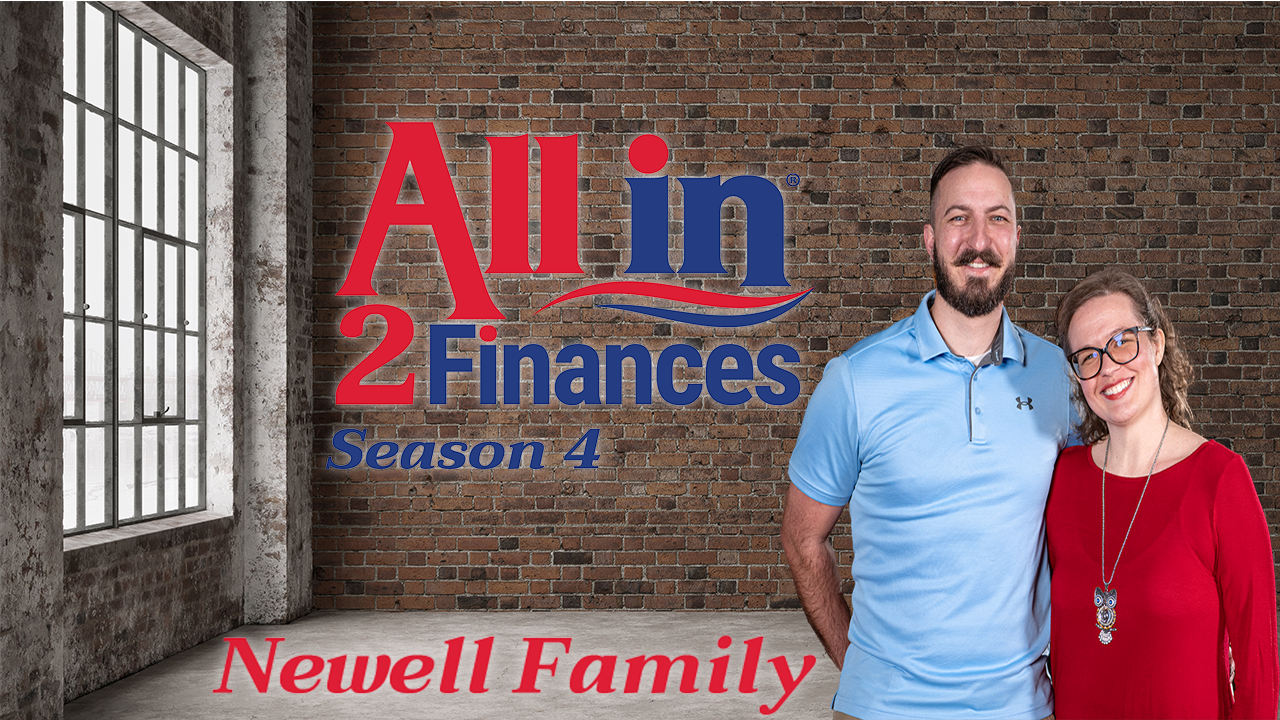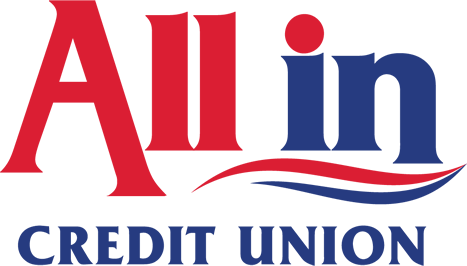
Follow along to see their progress.
Month 1 | April 2024
Focus: Budgeting, Settings Goals & All In Financial Tools
This month we have learned that All In Credit Union provides tools and resources to improve our financial situation and enhance our literacy. With SavvyMoney we can track and monitor our credit score on a monthly basis and increase our knowledge of finances through the online educational modules provided by Everfi. As a family, we have improved how closely we are monitoring our accounts which has helped to identify unnecessary expenses and eliminate them.
Monthly Improvements:
- Increased savings
- Paying down bills more rapidly
- Spending less on frivolous purchases
- Tracking accounts and money more wisely
Month 2 | May 2024
Focus: Using Credit Wisely; Platinum Rewards Credit Cards
We have been excited to see the amazing changes just two months can make. This process has made us pay attention to financial details that are usually overlooked. The All In financial education courses have been a great tool to help us learn and teach our daughters more about financial literacy. In month two, we downloaded and explored the many perks of using BaZing which is a perk of having an All In Smart Rewards Checking account. BaZing offers a multitude of benefits including cell phone protection, identity theft aid, road side assistance and health savings. We also explored All In's low interest credit cards and the benefits they offer.
This month we monitored our purchases closely and made changes to add more money into our savings account. That also included eating out less because that eats away at your budget and savings.
Monthly Improvements:
- Transfer of high interest credit card debt to lower interest with All In to reduce debt more efficiently
- Paid off student loans
- Had more money in our savings account
Month 3 | June 2024
Focus: Auto/Home Buying/Health Education
Over the last three months, we have learned so much from our coaches and our financial education courses online. In month two, we learned about credit and credit cards and how to utilize them in a positive way. There is a lot of negativity around credit cards but if you know how to use them and not abuse them, they can be very beneficial. We ended up transferring all of our debt to an All In Platinum Rewards Credit Card to pay off our debt faster which is our current focus. We have been comparing insurance rates for home and auto because we could save extra money by cutting costs in those areas. It's always good to shop around and compare rates because you could be overpaying and not even realizing it. With saving money and sticking to a budget, we have been learning where to place our extra money to continue to pay down our debt.
We have really tried not to pull any money out of our savings account and strictly use the money allocated from our budget. We have been eating out much less to cut down on our extra spending. Another thing we are trying to do is focus on setting small goals and achieving them instead of getting overwhelmed looking at the big picture. If we can pay off one thing at a time it feels like small wins instead of focusing on everything at once and not feeling like much is being paid down.
Monthly Improvements:
- We have lowered debt on our mortgage, credit card, student loans and personal loans
- Planning for upcoming expenses and having the money saved up for them
- Growth in our savings account
- Over $9,000 in debt reduction and counting
Month 4 | July 2024
Focus: Saving for Children/College
We have learned that saving money and reducing debt doesn’t have to be overwhelming—it just takes consistent focus. We've started making it a daily goal to prioritize both. By keeping savings and debt reduction at the forefront of our minds, we've found that small, intentional decisions throughout the day can lead to big results over time. Whether it's choosing to skip an unnecessary purchase or putting a little extra towards a debt payment, these everyday choices are adding up. The key is staying mindful and making savings a habit.
A big habit that we have changed is we allocate all of our money first thing after receiving our paychecks. We put them towards bills, savings and debt payoffs, and then budget the remainder to live on for the rest of the month.
Monthly Improvements:
- We have less worry about our future abilities to manage our finances and paying off debt.
- We are building a savings for emergencies.
- As of July, we have reduced our debt over $11,000.
Month 5 | August 2024
Focus: Retirement Planning & Insurance
Recently, we learned a crucial lesson: savings don't just happen by chance. You have to make a conscious, consistent effort to set money aside, especially when planning for upcoming expenses like our September vet bills. It's all about being proactive, not reactive, with your finances. We've also seen how continuous and steady debt reduction can have a powerful effect on credit health. Each payment not only chips away at debt but also helps to steadily improve your credit score, setting the stage for long-term financial success.
Old habits have a way of creeping back in, but it’s important to remember what you’ve learned and what you’re working toward. Lately, we've focused on breaking the cycle of living paycheck to paycheck by changing how we approach our finances. Instead of just getting by, we've learned to use our money as a net—planning ahead, saving intentionally, and managing our expenses with purpose. For me, this shift has significantly reduced the stress and anxiety I used to feel about money, giving me a sense of control and security that was missing before.
Monthly Improvements:
- We didn't have to use our credit cards for unexpected expenses.
- We are setting long term goals for finances after the new year.

